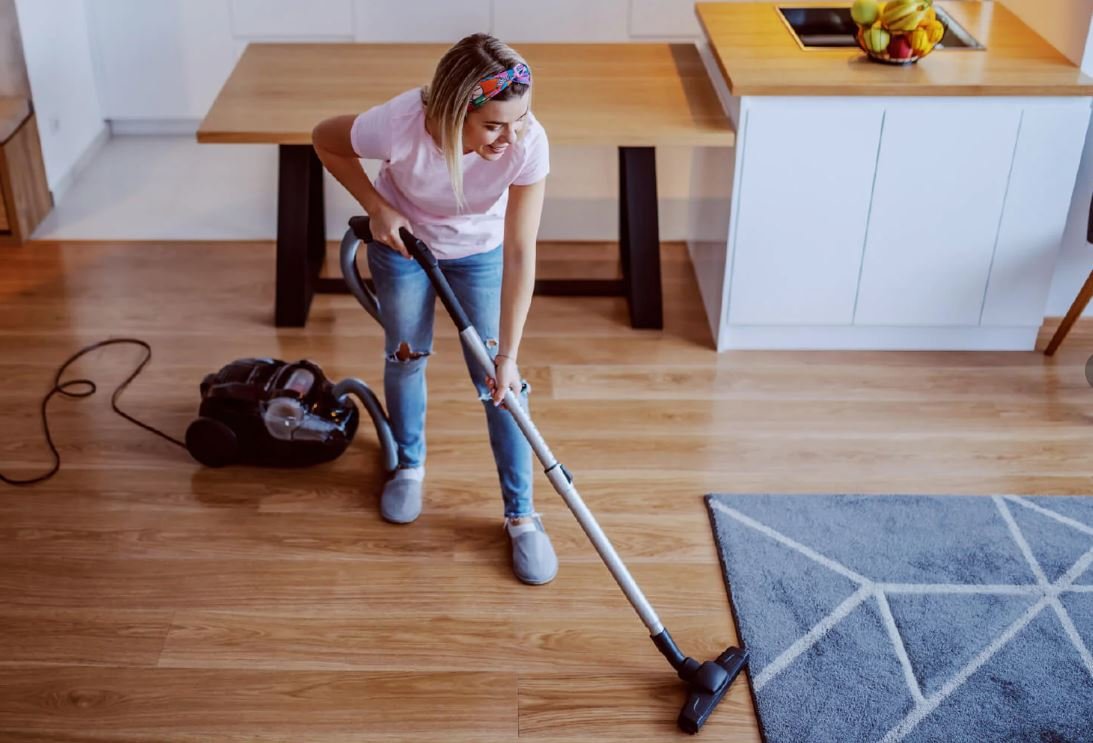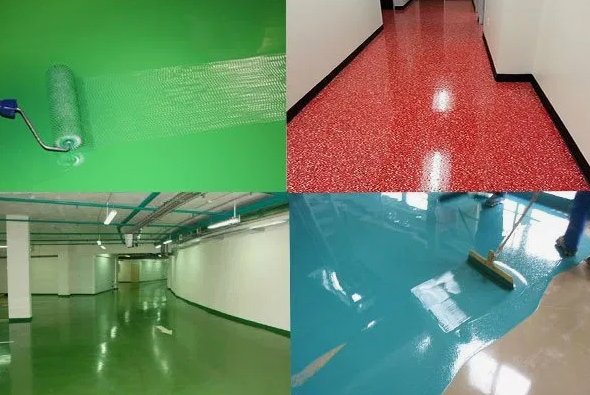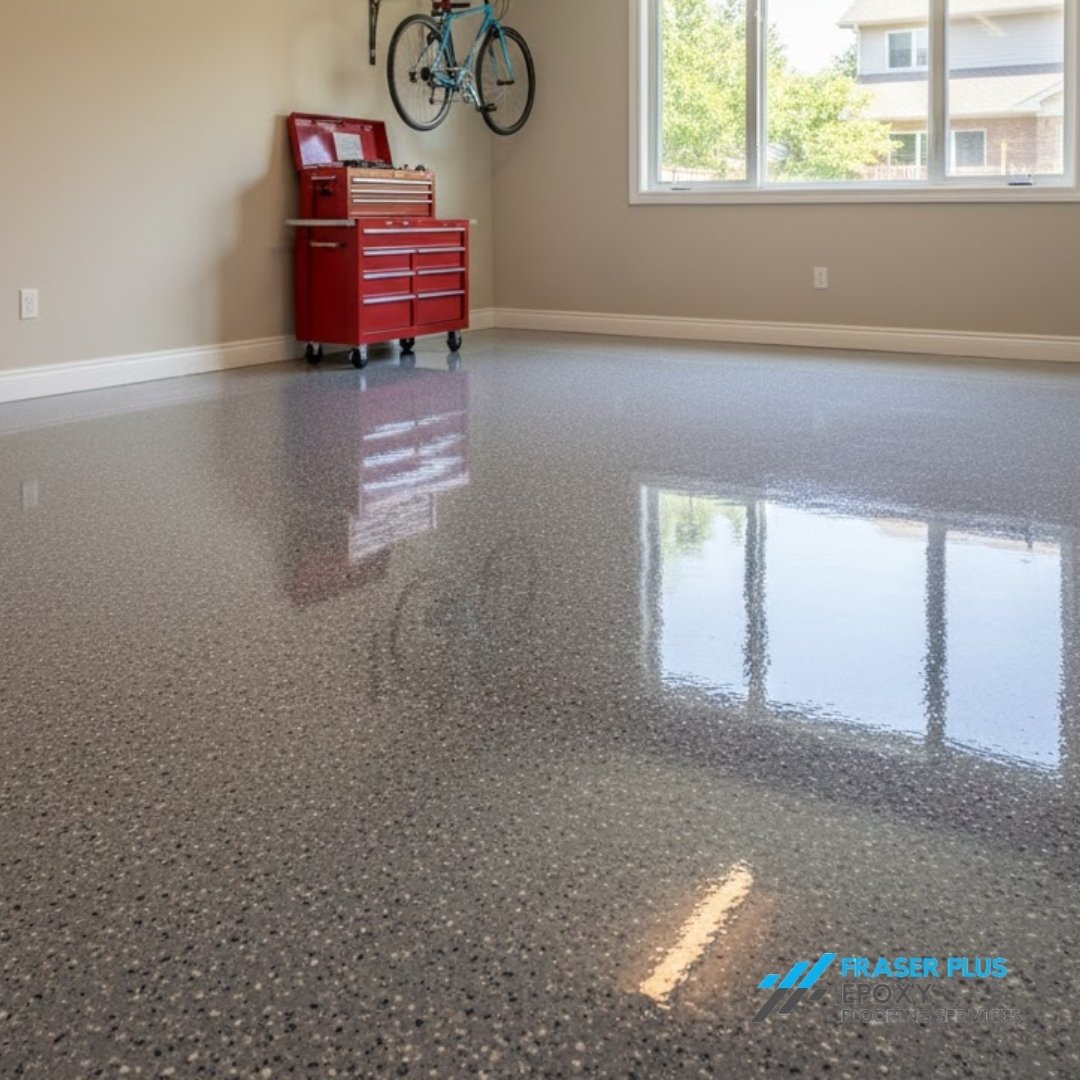Industrial Flooring Durability
Epoxy Flooring: Superior Durability for High-Traffic Areas

Epoxy flooring is widely regarded for its unmatched durability, particularly in industrial settings where floors endure heavy foot and machine traffic. Epoxy flooring can withstand significant impacts, abrasions, and chemical spills, making it ideal for industries like manufacturing and warehousing. This makes epoxy a popular choice among business owners seeking a long-lasting solution for their facility’s flooring needs.
The durability of epoxy flooring also contributes to cost savings over time, as businesses don’t need to worry about frequent repairs or replacements. It’s estimated that the average lifespan of an epoxy floor ranges from 10 to 20 years, depending on the environment and level of use.
Estimated cost: $3 to $12 per square foot, including installation.
Vinyl Flooring: Prone to Wear and Tear

While vinyl flooring is another common choice for industrial spaces, it doesn’t offer the same level of resilience as epoxy. Vinyl can be more susceptible to tears, punctures, and scratches, especially when subjected to the heavy machinery and equipment common in industrial environments. Additionally, water infiltration in vinyl seams can lead to mold and mildew growth, adding to maintenance costs over time. Vinyl may need to be replaced more frequently, making it less cost-effective in the long term.
Estimated cost: $2 to $7 per square foot.
Polyurethane Flooring: Flexible but Less Rigid

Polyurethane flooring is known for its flexibility and good durability, but it may not offer the same level of rigidity as epoxy. While it performs well under certain extreme conditions, such as exposure to chemicals or heat, it doesn’t hold up as well under high-impact scenarios. This makes polyurethane suitable for areas that experience thermal shock or require a more flexible material, but it falls short in industrial settings where physical impact resistance is critical.
Estimated cost: $5 to $15 per square foot.
Maintenance Requirements
Epoxy Flooring: Easy to Clean and Maintain

One of the standout features of epoxy flooring is its low maintenance requirements. Due to its non-porous surface, epoxy is resistant to liquids, stains, and chemicals. This makes cleaning an epoxy floor straightforward, often requiring just a broom or mop. In industrial settings, where hygiene is a priority, epoxy can be easily disinfected without the need for harsh cleaning agents. This ease of maintenance is another factor that contributes to its cost-effectiveness over time.
Quick statistic: Maintenance costs for epoxy flooring can be up to 30% lower than those for vinyl or polyurethane over a 10-year period.
Vinyl Flooring: High Maintenance in Heavy-Traffic Areas

Vinyl flooring, although relatively low cost to install, can be more maintenance-intensive in the long run. In high-traffic industrial areas, vinyl may require frequent stripping, waxing, and polishing to maintain its appearance. Over time, this additional maintenance adds to the operational costs and downtime for businesses.
Polyurethane Flooring: Specialized Cleaning Required

Polyurethane floors are easy to maintain but may require specialized cleaning agents to preserve their finish and avoid damage to the surface. While it doesn’t absorb stains or liquids as quickly as vinyl, it isn’t as impervious as epoxy, particularly in areas where chemical spills are common.
Safety Features
Epoxy Flooring: Customizable for Slip Resistance
Safety is a top priority in industrial environments, and epoxy flooring excels in this area. It can be customized with slip-resistant additives, making it a safer option for workplaces where there’s a risk of slips and falls. Additionally, epoxy floors reflect light well, improving visibility in poorly lit areas and contributing to a safer work environment overall.
Quick statistic: Adding slip-resistant coatings can reduce workplace accidents by up to 40% in high-risk environments.
Vinyl Flooring: Limited Customization for Safety
Vinyl flooring can offer some slip resistance, but it doesn’t provide the same level of safety customization as epoxy. While it’s possible to add slip-resistant surfaces to vinyl, these often wear down over time, especially in high-traffic areas, reducing its overall safety benefits.
Polyurethane Flooring: Some Slip Resistance but Less Customization
Polyurethane flooring offers a moderate level of slip resistance, but like vinyl, it lacks the range of customizable safety features available with epoxy. This makes it a less optimal choice for environments that require specific safety measures, such as manufacturing floors where slips and falls are a concern.
Cost-Effectiveness
Epoxy Flooring: A Long-Term Investment
Although epoxy flooring may have higher upfront installation costs than some alternatives, it is widely considered cost-effective due to its longevity and low maintenance requirements. Since epoxy can be applied directly over existing concrete, installation costs are reduced. Its durability means that businesses can avoid the need for frequent repairs or replacements, making epoxy a wise long-term investment.
Estimated cost: $3 to $12 per square foot, depending on customization and size.
Vinyl Flooring: Lower Initial Cost but Higher Long-Term Expense
Vinyl flooring is cheaper to install initially, but it may require full replacement in case of significant damage, as it cannot be resurfaced like epoxy. This drives up long-term costs, particularly in industrial environments where flooring endures constant use.
Polyurethane Flooring: Higher Material Costs
Polyurethane tends to be more expensive than epoxy due to its material properties and the specialized installation techniques required. However, in environments that require flexible flooring, the additional cost may be justified. Still, for most industrial applications, epoxy offers better value due to its rigidity and longevity.
Environmental Impact
Epoxy Flooring: An Eco-Friendly Choice
Many modern epoxy floor coatings are made from non-toxic materials and have low VOC (volatile organic compounds) emissions. This makes them an environmentally friendly option for businesses looking to reduce their ecological footprint. Additionally, since epoxy floors last for decades, they contribute less waste to landfills than shorter-lived alternatives.
Vinyl Flooring: Environmental Drawbacks
Vinyl flooring has a larger environmental footprint due to the harmful compounds it can release during installation. Additionally, vinyl is not biodegradable, contributing to environmental waste when it needs to be replaced.
Polyurethane Flooring: Moderately Eco-Friendly
While polyurethane flooring does have some eco-friendly options available, it generally has a higher environmental impact than epoxy due to its chemical composition. Some manufacturers have started offering low-VOC versions, but epoxy still remains the more sustainable option overall.
When to Call a Professional for Epoxy Flooring Installation
Installing epoxy flooring is a task best left to professionals, particularly for large industrial spaces. A professional installer ensures that the surface is properly prepared, the epoxy is applied evenly, and any customizations, such as slip resistance or color options, are correctly implemented. Incorrect installation can result in poor adhesion, bubbling, or uneven surfaces, reducing the floor’s longevity and effectiveness.
Estimated cost for professional epoxy flooring installation: $8,000 to $30,000 for a typical 1,000 to 2,500 square foot industrial space.
Quick statistic: Professionally installed epoxy floors last 10-20 years on average, with proper maintenance extending their lifespan by up to 30%.
In conclusion, epoxy flooring stands out as a superior choice in industrial settings due to its durability, ease of maintenance, safety features, cost-effectiveness, and eco-friendly properties. When compared to vinyl and polyurethane, epoxy offers the best balance of performance and value, making it an excellent long-term investment for businesses looking to improve their facilities’ flooring.



